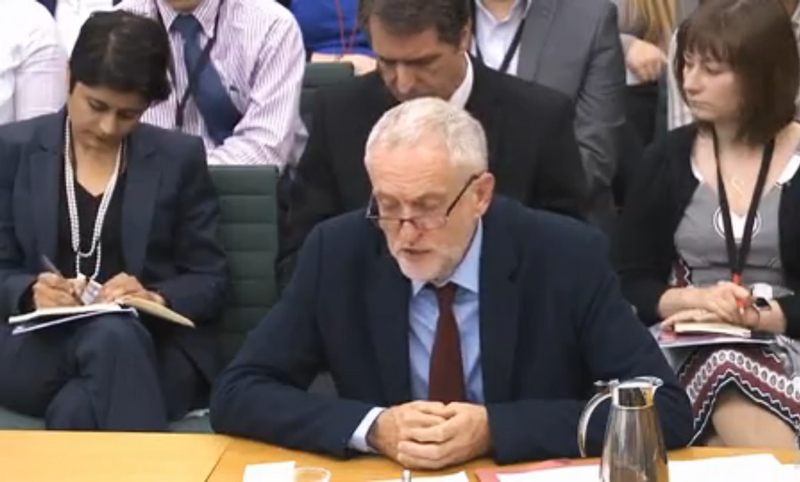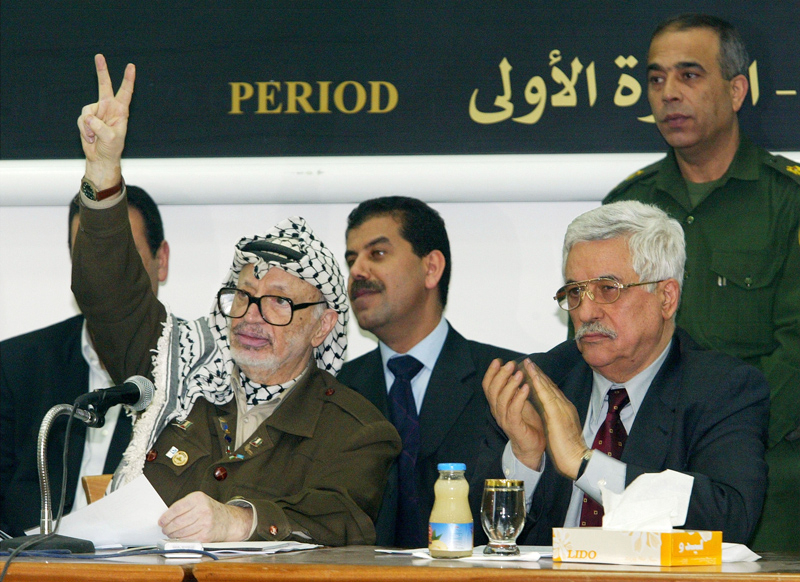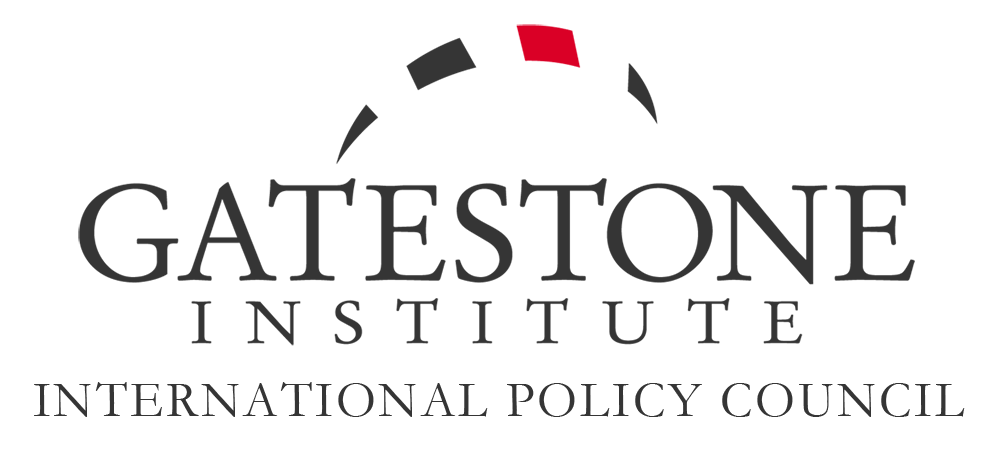In this mailing:
- Denis MacEoin: The British Labour Party's New Definition of Anti-Semitism
- A. Z. Mohamed: Abbas: The Same Mistakes as Arafat
by Denis MacEoin • September 7th
It was clear that the Chakrabarti inquiry, described by the head of a parliamentary committee as a "whitewash", had ignored a vast swathe of submissions, chiefly from Jewish leaders, writers, and activists.
Clearly, Jeremy Corbyn is betting that in the Britain today, anti-Semitism is quite literally the winning ticket.
The caveat is clearly designed to let anyone accused of such biased criticism (a central feature of Labour anti-Semitism in the past) wriggle out of demands for their removal and allow Labour to dismiss all but the most unspeakable forms of anti-Semitism.

Jeremy Corbyn (center) is questioned by a House of Commons Home Affairs Committee on the Labour party's anti-Semitism inquiry, while the inquiry's author, Shami Chakrabarti (left) scribbles a note to him, July 4, 2016. (Image source: UK Parliament)
Britain's Labour Party, which remains the chief opposition to the current Conservative government, has struggled to throw off a reputation for condoning anti-Semitism and harbouring large numbers of anti-Semites in its ranks. Revelation after revelation of anti-Jewish, anti-Zionist, and anti-Israel utterances, resolutions, and internal investigations have brought the party into serious disrepute and given the media and their political opponents endless opportunities justifiably to label the party with charges of racism. Anti-racism is, quite rightly, a value presumably respected by most people. Writing in British Future in April, Sunder Katwala says he spoke to an anti-racism rally for his local Labour group:
"I told the audience that Labour has been a trailblazer on race. That if you looked around the world, it might be difficult to find any other political party that has taken so much pride in having been a pioneer in fighting racism."
by A. Z. Mohamed • September 7th
The question that needs to be asked is: Is it Palestinian public opinion, brought on by decades of incitement, that is pressuring Abbas into embarking on his anti-peace and anti-Israel rhetoric?
Abbas has chosen to endorse a legacy that he himself denounced in 2011. This legacy does not consider the lack of a Palestinian state to be the problem, but the existence of a Jewish and democratic state. It is a legacy that does not believe in peace with Israel but peace without Israel.
The majority of Abbas's people do not trust him, are dissatisfied with his leadership, and demand that he resign. He is unable and unwilling to help his people abandon nationalist and Islamist delusions and myths representing outdated objectives, beliefs, and rhetoric. At this point, he cannot grow out of them. In short, Abbas has duplicated the mistakes of Arafat.

Pictured: Then Palestinian Authority (PA) leader Yasser Arafat (seated left) with then PA Prime Minister Mahmoud Abbas (seated right) on April 29, 2003. (Photo by David Silverman/Getty Images)
Why did Palestinian Authority President Mahmoud Abbas recently reject an offer to meet with White House advisors Jared Kushner and Jason Greenblatt?
According to a report in the London-based, Arabic-language newspaper Al-Hayat, Abbas viewed the reported offer as an attempt by the Americans to push the Palestinians into agreeing to a peace process favorable to Israel.
Abbas and his PA leadership have been boycotting the US administration since President Donald Trump's decision to recognize Jerusalem as Israel's capital in December 2017.
Abbas's refusal to meet with the Trump envoys did not come as a surprise. In fact, in light of his anti-Israel rhetoric in the past few months, the Palestinian leader's decision was expected.
|
|



No comments:
Post a Comment